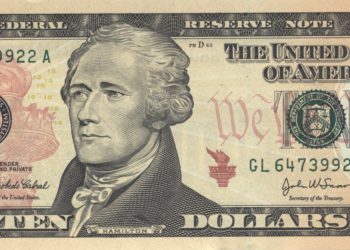A historian will tell you that every era, every group of people, every subject, and every last fragment of material about the past is historical. We are always living through history. We always benefit from rigorous historical research and scholarship. And while history has conventionally been written from a privileged position, and about politics, wars, and economies, most of us work from more complex situations and on a more complex combination of phenomena that could any moment be reflected in the present. Historians of medicine, for example, have been working overtime explaining how socio-economic inequalities mapped onto historical pandemics and parallel what we see with COVID19. Historians of authoritarianism and white supremacy have been working overtime to show us how these movements have proliferated and been sustained over decades — even centuries. Historians of race, and particularly of slavery and Jim Crow in the United States, have been pointing to the iterative quality of politics and policy that have led to dynamics we saw play out last summer in episodes of police violence and protest. Last week’s riot and insurrection at the U.S. Capitol seems a particularly stark moment that will likely be pointed to for generations to come, either as a culmination or an origin or both.
I asked historians of the early Americas and United States who have published books in this year of pandemic and political crisis how they are feeling about living through this moment of pandemic and political crisis, and how the subject of their scholarship and/or the practice of history feels relevant and resonant. It’s a remarkable set of reflections, and I’m grateful to these scholars for taking the time and energy — when there is so little of either to spare — to contribute.

Vanessa M. Holden, University of Kentucky, author of Surviving Southampton: African American Women and Resistance in Nat Turner’s Community (2021)
Like many Americans, I woke up on the morning of Wednesday, January 6th, to the news that Georgia would have at least one (likely two) Democrats as U.S. Senators as the result of runoff elections held on Tuesday the 5th. A coalition of activists and organizers had triumphed after years of hard-fought efforts to get out the vote, register new voters, and combat voter suppression. Black women and femmes knew Georgia could be blue and, after years of hard work, had realized their vision. In a state where most Americans unfamiliar with Black women’s history saw only solid red, they’d made a way out of possibility. That same afternoon I spoke with a colleague via Zoom. She was hopeful. I was cautious. “Violence,” I said, “I’m worried about the violent backlash. It has already started. It is going to get worse.” In the few seconds of silence that passed between us across computer screens my phone buzzed. My brother was texting to tell me that Vice President Pence was being removed from the senate chamber. On Twitter, raw footage of a Black Capitol police officer swatting at a white mob with a nightstick lit up my timeline. What had happened to him after he’d exited the camera frame?
Like many Black Americans I watched the day unfold while thinking of Black residents of Washington, D.C., the people of color who work as custodians, food service workers, and staff at the Capitol building, and the sharp contrast in law enforcement’s non-response to the invasion of the Capitol by white insurrectionists in comparison to militarized violent police responses across the country to peaceful protest by BIPOC and our allies. At the end of the day, photos of security standing near custodial staff (all apparently people of color) as they swept up broken glass began to circulate. Later we learned that insurrectionists smeared human excrement throughout the building.
How much had custodial staff been exposed to the deadly virus that day?
Like many historians I thought about my work. For me, completing and publishing a book about America’s most famous rebellion against slavery and enslavers, took on additional immediacy. The women, children, and men who I write about in Surviving Southampton: African American Women and Resistance in Nat Turner’s Community, found ways to preserve their community amidst overwhelming white violence in 1831. This year the Covid-19 pandemic brought into sharp focus systemic racial inequalities that Black historians have innovated entire historical fields to explore, document, and combat. Black death, from Covid-19 and police violence, has been ever present in our kinship networks, communities, neighborhoods, and on our newsfeeds. Survival requires labor: the day-to-day work, choices, and determination to endure. But, as I write in my book, the word survivor has more than one meaning. It is our word both for those who endure and for those who are bereaved. In Georgia, Black women and femmes did exhausting survival work to flip the Senate — work that will endure. In Kentucky, where I live, Black Lives Matter activists are raising funds to stave off the eviction crisis for vulnerable Black women and femmes even as armed militias plague the state capitol in Frankfort. When the camera moves on, what work of survival will we take up? What ways will we endure bereavement? And what of our work will endure?
Claudio Saunt, University of Georgia, author of Unworthy Republic: The Disposssession of Native Americans and the Road to Indian Territory(2020)
“Unworthy Republic,” the title of my recent book on the expulsion of Native Americans from the eastern half of the United States in the 1830s, comes from a letter written by James Folsom, a Choctaw student studying at Miami University of Ohio in 1831. The United States had mistreated the Cherokee Nation, he wrote, and the American Republic would “go down to future eyes with scorn and reproach on her head.” As I was writing Unworthy Republic, the politics in the United States were changing around me, and the book’s subject — white supremacy, political cowardice, and economic opportunism — became more tightly relevant. That served as a motivating force, and I think made the work more present and urgent. In the 1830s, white supremacists threatened to take up arms to defend a grotesque vision of their rights, politicians pretended to take principled stands that were transparently self-serving, and profit-seekers disregarded everything but the dollars they coveted. Folsom asserted that the United States would feel the legacy of injustice “in her legislative halls,” a prediction that came true on January 6. That injustice, he wrote, “never will be eradicated from her history.” I would like to think that if we had faced that history more fully, we would not have seen rioters in the U.S. Capitol building proudly bearing the Confederate flag and other symbols of white supremacy.
Serena Zabin, Carleton College, author of The Boston Massacre: A Family History (2020)
On the night of March 5, 1770, armed agents of the state – British soldiers – shot into a crowd gathered in the street before the seat of imperial power in Boston. When the smoke cleared, five men lay dead or dying in the snow. This year, I published The Boston Massacre: A Family History for the two hundred and fiftieth anniversary of an event that is often characterized as the first bloodshed of the American Revolution. By March 5, 2020, the world was already swept up in the first wave of COVID-19, and the murders of George Floyd, Breanna Taylor, and others were soon to come. I had not written my book to speak to the contemporary issue of police brutality or to address what happens when the military and the police collapse their functions into each other. Nor had I intended to weigh in on violence done in the name of liberty. The heart of my book is about the personal relationships between neighbors, and even within families, that were splintered in the political and social upheavals of the American Revolution. And yet, this family history of the eighteenth century clearly does have something to say about the events of the past nine months, something that is no less useful for being unintentional. As I began researching this event more than ten years ago, I had to trust that readers in the present would find it relevant. I just had no idea how right I would be.
Marcus Nevius, University of Rhode Island, author of City of Refuge: Slavery and Petit Marronage in the Great Dismal Swamp, 1763-1856 (2020)
On January 6, 2021, I observed the flood of white supremacist terrorists who “stormed” the U.S. Capitol building. On Twitter, I reacted in real time. About an hour before “breaching” the Capitol ground’s outer perimeter (mere yards from the west and east entrances to the building), the mob attended a rally, led by an incumbent lame duck president, near the White House. That president amplified yet again the baseless claims that the presidential election of 2020 had been “stolen” from him and his supporters. Injuring tens of U.S. Capitol police officers and other law enforcement officials, the mob feloniously broke into the Capitol building. While inside, they paraded about, carrying Confederate flags, chanting “Stop the Steal,” and targeting U.S. legislators who scurried to evacuate as the mob broke into their offices. One woman lost her life; at least one police officer paid the ultimate sacrifice in the duty to protect the Capitol; several in the mob lost their lives. The mobs’ actions took shape on national television, as awed newscasters on stations of all stripes nationally and internationally broadcast live the mob’s figurative and literal desecration of the nation as we know it.
This mob, however, did not storm the Capitol. It did not breach the building. To say either is to imbue the mob’s actions with the connotations of protest, of a war for a valiant cause. To do that is to validate the very rhetoric that animated the mob, instigated by a lame duck president, that believed it was disrupting an “illegal” (re: totally legitimate) process of confirming the votes that the independent states submitted to Congress by way of the Electoral College. The mob’s felonious entry into the Capitol was not valiant. If anything, it was, at base, a COVID-19 superspreader event.
A few days’ reflection have reminded me that my visceral reaction on January 6th, that “it should NEVER have come to this…” was wrong. As an historian of slavery, slave based economies, and black resistance in early America, I know all too well the examples that are not known widely enough — the 3/5ths Compromise; the Federal Fugitive Slave Law of 1793; the Missouri Compromise; the several bills comprising the Compromise of 1850; the Dred Scott decision of 1857 — the list goes on. Political compromises from 1787 to 1850 did not save the nation from Civil War; postbellum political compromises did even less to quell the nation’s sordid racial history. The truth, as scholars of many stripes know all too well, is that what we observed on January 6th was our nation’s deep seeded politics of hatred, borne of the nation’s original sin — slavery. The mob’s actions were a demonstration of this very truth. And a poignant warning that, as yet, we have much with which to reckon.
Michael D. Hattem, Yale University, author of Past and Prologue: Politics and Memory in the American Revolution (2020)
I have been studying the history and the legacies of slavery in the Atlantic World for nearly twenty years, and we know that the growing interest about the slavery past is closely associated with the persistence of racial inequalities, racism, and white supremacy. But all this could be perceived as an abstract idea. Of course, we have seen black social actors and their academic allies decrying the absence of public markers memorializing this past for several decades, but in the summer 2020 it was the first time that anti-racist public demonstrations (reacting to the assassination of George Floyd) reenacted these debates in tangible ways, not only in the United States, but also in Britain, France, Belgium, Portugal, and many other countries. Living through this time is a strange experience. As these monuments became the target of demonstrators denouncing anti-black racism, it is much more evident on how these devices embody the values of white supremacy. Suddenly, the topics that I discussed in a book to be released in October 2020, were popping up on my computer screen as current events in the summer 2020. The attack by white nationalists, white supremacists and nazis on the US Capitol of January 6, 2021 is also an expression of this context. It’s the culmination of a long history of slavery and racial violence that started centuries ago, but that reemerged in recent years through the actions of white terrorists such as Dylan Roof in Charleston and the mob to defend the statue of Robert E. Lee that happened in Charlottesville in 2017. The speed of the events and the fact that we are physically and emotionally tired make the task of the historian harder. But it offers me a great opportunity to see this history of the present, on which I worked for several years, unfolding before my eyes. At the same time, as someone researching the memory of slavery, I know that working on topics close to the present poses many challenges. And in the present context, it’s very hard to see these events from a broad enough perspective. Still, scholarship and the search for truth, no matter how challenging, are the best path forward.
William G. Thomas III, University of Nebraska and author, A Question of Freedom: The Families Who Challenged Slavery from the Nation’s Founding to the Civil War (2020)
When I was researching and writing A Question of Freedom, a reckoning with the history of slavery and racism in the United States was already underway. I saw the book was one means to repair American history and confront the terrible menace of white supremacy unfolding at the time — the murder of Black church members at Emmanuel African Episcopal in 2015, the police shootings of unarmed Black men and women, and the violence of Charlottesville in 2017. I set out to write A Question of Freedom because I wanted to understand how slavery had gained sanction under the law and in the Constitution despite its obvious incompatibility with the founding principles of equality and natural rights. Slavery was a moral problem. And Revolutionary Americans knew it. What I did not realize at first was that slavery was always a dubious institution in the law. It had been fought and contested in the law from the nation’s founding and before. One of the main points I try to make is that particular families experienced slavery. Many Americans see slavery as an abstract institution, faceless and nameless. In most textbooks Black families are almost never mentioned by name. But there was nothing abstract about slavery. And Black families, like the Queens and the Mahoneys, who sued slaveholders for their freedom were at the center of the nation’s founding in a way most Americans have not acknowledged. Their freedom suits amounted to a concerted effort to bring the problem of slavery before the nation. Once I met with the descendants of these families, I wanted to tell the story in a way that made it clear that this history is still with us today, that this is palpably felt history. It affects real people, real families. In A Question of Freedom I wanted readers to experience what I was experiencing: the vibrant immediacy of the past, the heightened awareness that events 240 years ago have profound, indeed personal, consequences in our world today.
Daniel Mandell, Truman State University, author of The Lost Tradition of Economic Equality in America, 1600-1870 (2020)
Quite clearly the subject of my book, American concerns about economic inequality, has been woven throughout this year’s crises in the U.S. This was particularly true of the pandemic, during which the stock market and the numbers of homeless and hungry have both skyrocketed; with the political wars, as one party pushed for massive federal assistance and the other insisted that low-wage workers should essentially be forced back to work regardless of the danger; and (perhaps a little less obviously so) with efforts to confront the racial inequalities imbedded in so many of our country’s concerns. But I was disappointed that the many speeches and extensive commentary on these issues never acknowledged that this country had a long tradition, going back to before its founding, that the health of our republic required avoiding extremes of great wealth or terrible poverty. In fact, I started on that book a decade ago because that history was never mentioned even as the widening wealth gap became a chasm with the Crash of 2007-2008. Alas my hope that the book would help revive that tradition seems, like so many other (and more significant) hopes and dreams, to be steamrollered by the crises of this moment.
Sophie White, University of Notre Dame and author, Voices of the Enslaved: Love, Labor, and Longing in French Louisiana (2019); co-editor, Hearing Enslaved Voices: African and Indian Slave Testimony in British and French America, 1700–1848 (2020)
As an historian of race and slavery, I am constantly struck by lasting legacies, not least in the perpetuation of formal and informal rules aimed at continued disenfranchisement. I am just as struck by the recurring attempts to repudiate this disenfranchisement, and how this disavowal manifested itself both then and now. My research delves into the ways that enslaved individuals in colonial America spoke up, in courtroom testimony, about their subjugation. Thanks to archives that put these individuals’ words front and center, I show how, just as with the Black Lives Matter movement, they used their voices to call out inequities. And if we listen to what they had to say, we hear in their testimony a demand to be heard, to be seen, to be named, and above all, in a damning rebuttal of the premise of slavery, we see them put their full humanity on display.
Daryle Williams, University of Maryland, Co-PI enslaved.org and Editor, Journal of Slavery and Data Preservation (both launched, 2020)
2020 was a year when I spent a lot of time staring at Google Sheets. In the shorthand of morning domestic chatter, I merely needed to say “spreadsheets” in response to my husband’s query “what are you working on today?” A few dozens of those Sheets were created by me, for the Free Africans of Brazil Dataset, and many more were part of the terrific datasets published online for the launch of Enslaved: Peoples of the Historical Slave Trade. In time, Enslaved.org seeks to reshape the fields of slavery studies and inclusive scholarly communications, unleashing the power of linked open data to more fully see and understand experiences of enslavement for named individuals and their families. This important, collaboratively produced site aims to be a space where humanists and data scientists, academics and family historians, as well as continental Africans and people of the Diaspora re/un-cover black life matters in a fullness denied them by the archives of the transatlantic trade and its aftereffects. But in a year in which black peoples and allies took to the streets in revolt against the algorithms of oppression, I also wrestle with the fact all this work relies heavily upon the historical anti-black technologies of identification, tracking, and surveillance. From the musty ledger book and nominal registry to the stultifying and disciplining tedium of the spreadsheet, I wonder often, what are we to do when we make people into data.
To read more historians contextualizing this historical moment, I recommend first the excellent Made By History series on the Washington Post. It is edited by expert historians and sometimes they publish multiple op-eds a day written by expert historians. On the events on January 6th, Megan Kate Nelson has created a round-up of ongoing writing by historians, and Lindsay Chervinsky one for historians who have been writing about the political and other fallout including impeachment. On pandemic, Monica Green and other historians of medicine (with links) included her own and other work in this recent Twitter thread. The American Historical Association has collected a bibliography of COVID-related responses by historians.
Discussion
2 Thoughts on "Historians in Historic Times"
Thank you so much for this excellent roundup. Another historian that is keeping me sane is Boston College’s Heather Cox Richardson, author of How the South Won the Civil War
Oligarchy, Democracy, and the Continuing Fight for the Soul of America, published by Oxford University Press in April. Her daily Letters from an American essays chronicle (with references) the events as they unfold and put them in historical context.
Thanks so much for reading, and for sharing on Twitter! And agree that Heather has done amazing work to contextualize this moment. Among many others I’d also point to the work of the African American Intellectual Society whose blog, Black Perspectives, is always running on point analyses. https://www.aaihs.org/black-perspectives/



